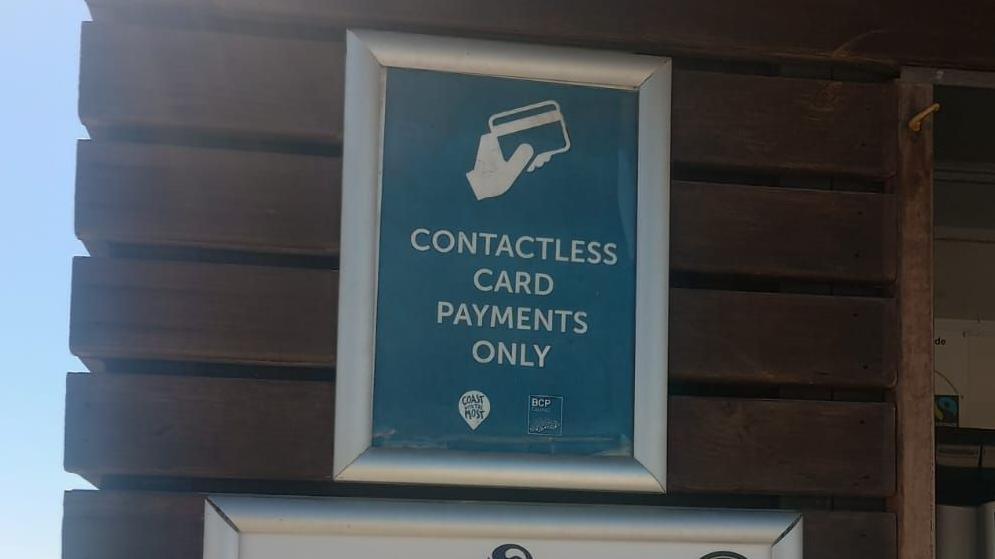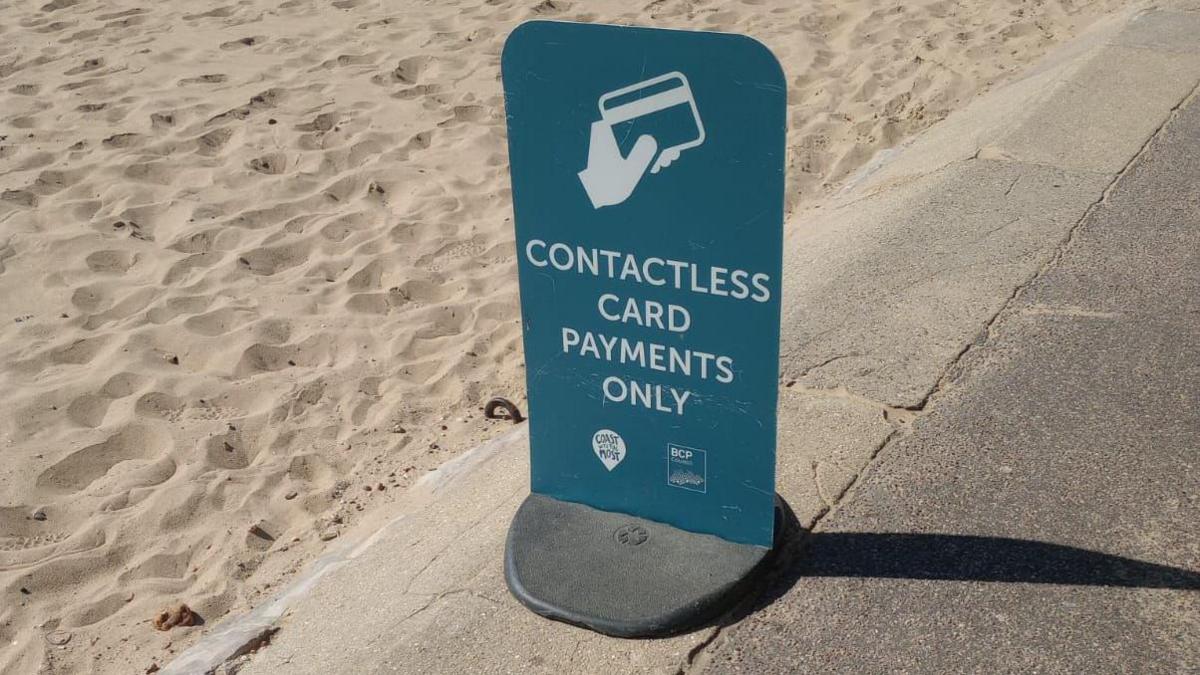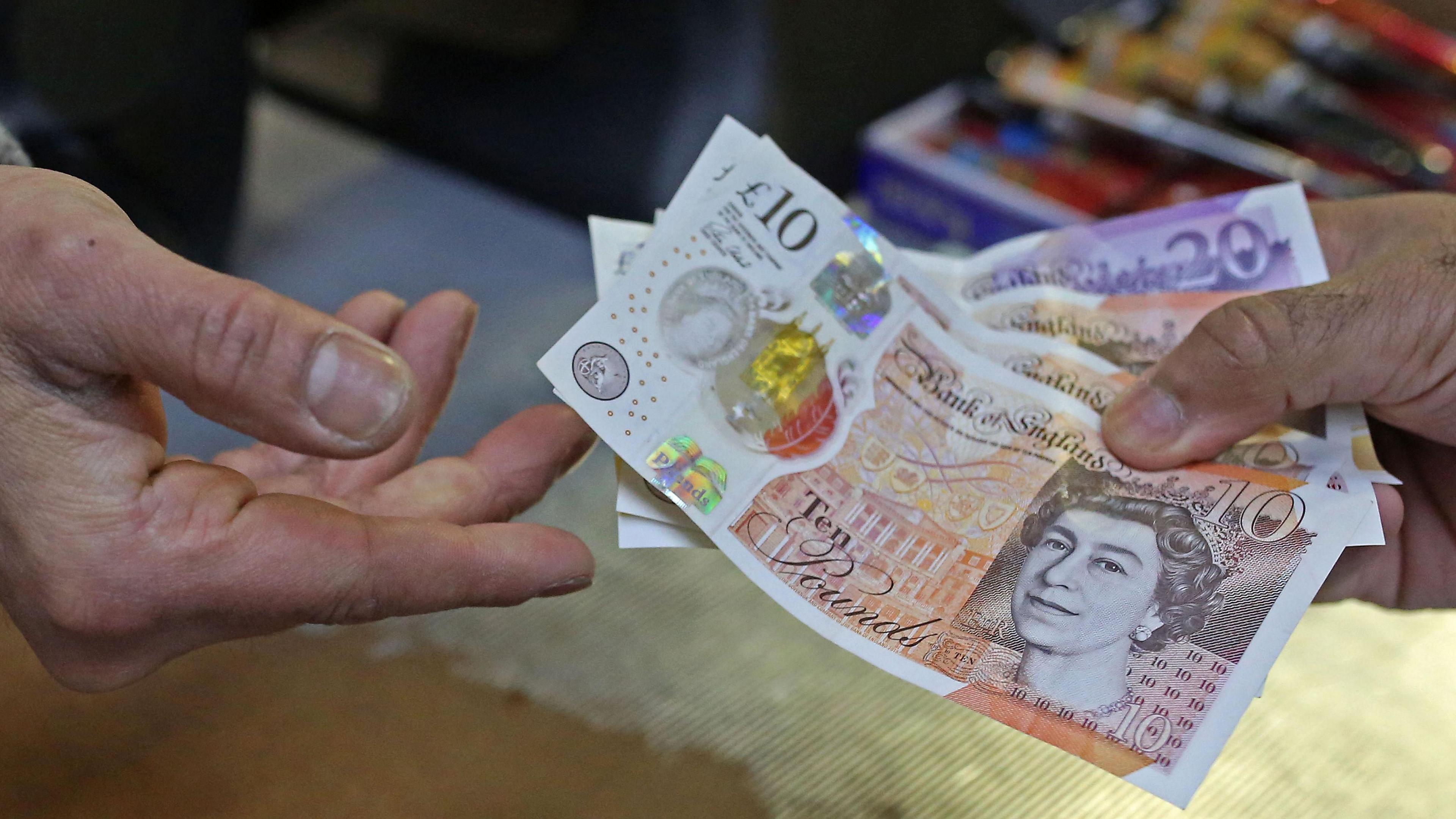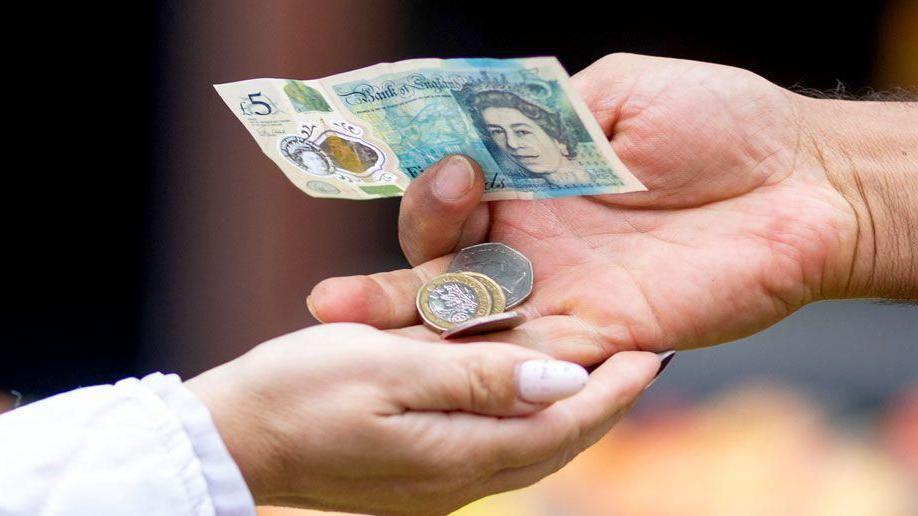Cash users face 'discrimination', campaigner says

Martin Quinn, from Campaign for Cash, said he visited Bournemouth during the Easter weekend
- Published
A campaigner has said cash users are being discriminated against at a seaside town after he claimed he was unable to buy an ice cream using cash.
Martin Quinn, from Campaign for Cash, said he visited Bournemouth during the Easter weekend and was told a council-run ice cream kiosk was "card only".
He questioned if BCP Council had "declared a total war on cash" as he said he also had to pay for his parking via an app because the parking machine did not accept coins.
BCP Council said all of its seafront services had been cashless since 2020 and it had seen "significant benefits", including a reduction in break-ins.
Listen: Council-run beach kiosks not accepting cash
Mr Quinn said: "Down at the seafront, the kids of course want ice cream, so not being able to pay with cash, I had to get the debit card out to pay."
He expressed his disbelief and thinks "discriminating against cash users is just plain wrong".
He added: "Cash usage and acceptance is of vital importance to all communities, especially those areas which rely on tourism income."
The 51-year-old, from Sutton, south London, has been campaigning for the use of coins and notes for more than two years.
He said he was standing up for those who were not "tech savvy".
"Your data is tracked when you pay on card," Mr Quinn said.
He added cash provided "freedom" and "security".

BCP Council has operated card only kiosks since 2020
A BCP spokesperson said: "All our seafront services have operated a card payment only system since 2020.
"Whilst we appreciate this practice will not suit everyone, we have seen significant benefits to the approach; it gives us the ability to provide a quicker and more efficient service our customers, in turn reducing queuing times.
"There is also less cost to the council by not handling cash, which allows us to keep prices lower.
"In addition, by operating cashless businesses our premises are no longer a target for theft and burglars - significantly reducing the risk of break-ins."
In January, Emma Reynolds, the economic secretary to the Treasury, said shops and service firms would not be compelled to accept cash.
But she admitted to MPs on the Treasury Committee that there was no chance of the UK becoming cash-free anytime soon.
Cash is legal tender in the UK but businesses are not obliged to serve people who only want to pay with notes and coins.
Some countries, such as Australia, are planning rules that would force essential services to accept cash.
But Ms Reynolds said: "We have no plans to regulate businesses - big or small - to compel them to accept cash."
Get in touch
Do you have a story BBC Dorset should cover?
You can follow BBC Dorset on Facebook, external, X (Twitter), external, or Instagram, external.
- Published27 January

- Published28 January
